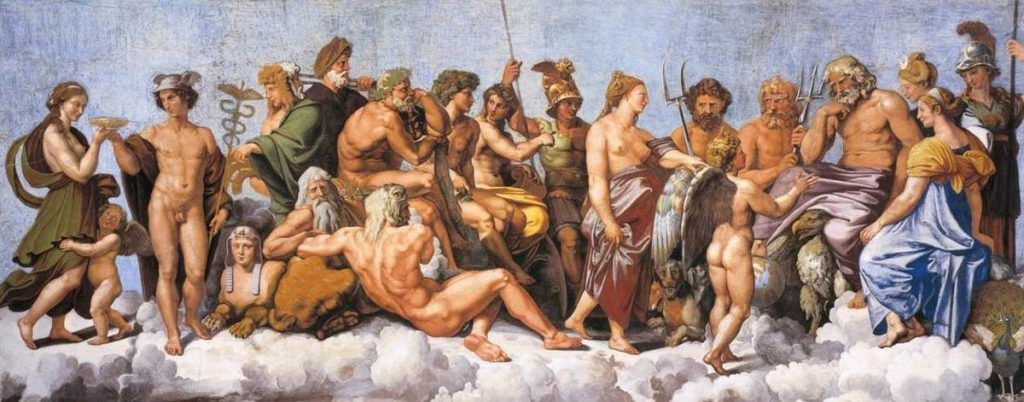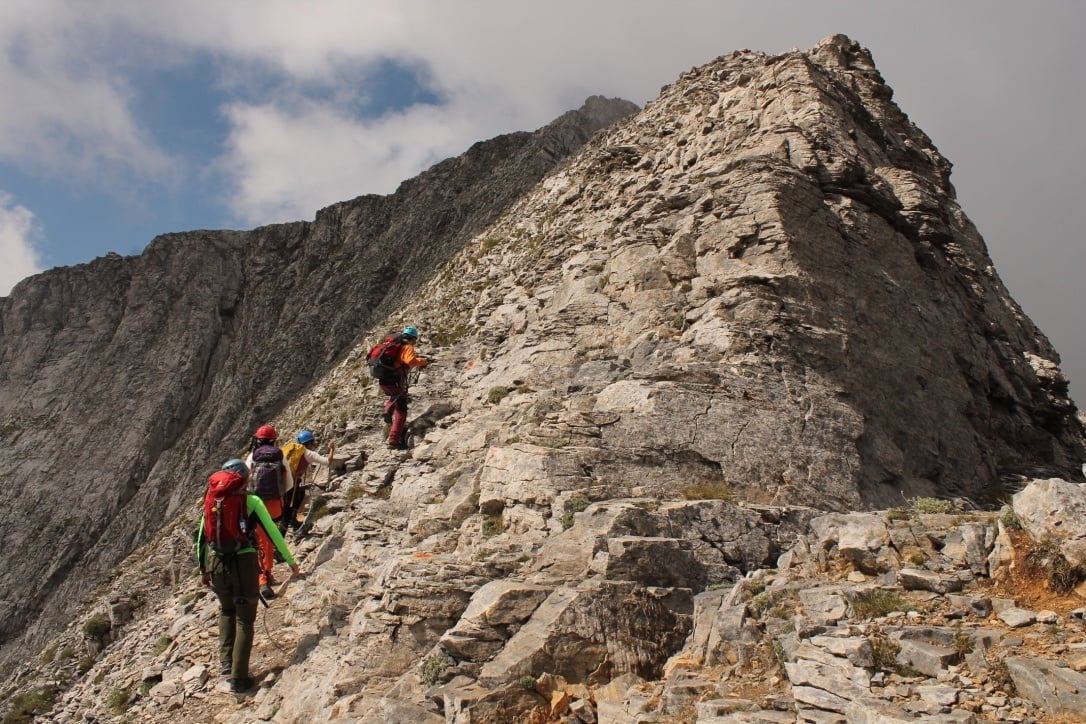
Olympos, Greece
Unsplash | Iason Raissis
Regarded by many as the heart of Greece, Mount Olympos has always been one of Earth’s most legendary locations. Olympos draws in visitors for a wide range of reasons, including its beautiful views and deep significance in Greek mythology & culture. This towering (2,917.727 meter high) mountain (Ampatzidis) garners deep respect, inspired countless tales, and is THE premier spot to visit on a trip to Greece.
In addition, it’s been designated as a National Park since 1938, the first of Greece!
In Greek mythology, Mt. Olympos [was] the most sacred of all Greek mountains, … the abode of the supreme god, Zeus, and the entire pantheon. (Langdon) In texts you’ll see it described as snowy-peaked and dotted with golden palaces of gods and goddesses.
Oh, the places you’ll go!

Mytikas Peak
Wikimedia Commons | Stolbovsky
Mytikas, also known as Pantheon (also meaning “nose”) is the highest peak of Olympos.
Next to Mytikas sits Stefani, also known as the Throne of Zeus, sitting just below it at 2,902 meters. In Greek myth, here Zeus sat alone when he wished for solitude: here he gathered his clouds and from here he hurled his thunderbolts and, on one famous occasion, Hephaestus: here he held councils of the gods or summoned them to feast (Fergusson)
Here’s where you won’t go, though: the Olympics. Believe it or not, Olympia, where the first Olympic Games historically took place, isn’t on Mount Olympos!
Local Villages
Northeast to Olympos lie the villages of Petra and Vrontou,
Petra, Lesbos
Wikimedia Commons | Vidariv

Ano Vrontou, Greece
Wikimedia Commons | Кочев
and southwest you can find Sykaminea and Karya, if you’re intrigued to see the local life.
Oh, the gods (and people) you’ll see!
In Greek mythology, there’s a pantheon of gods you’ll see referenced and interacting with each other time and time again throughout the various works. These commonly include:
- Zeus
- Poseidon
- Hera
- Demeter
- Aphrodite
- Athena
- Artemis
- Apollo
- Ares
- Hephaestus
- Hermes
- Dionysus
Do you know what’s special about this set of gods in particular? The name: These are the Twelve Olympians, named so because in Greek culture they all lived on Mount Olympos.

Psyche Received into Olympus
Raphael | 1517
This isn’t an exhaustive list of deities on Olympos, it’s just the common grouping of major gods! There’s no canonical list, it’s based on popular perception.
If the gods don’t catch your fancy, how would you feel about meeting the greatest Greek hero of all time, Heracles? Because of Zeus’ favor, on Heracles’ death he actually ascended to Olympos to live among the gods as a result of his many great feats and renown.
There’s a bit of a confusing distinction throughout the literature, though: Do the gods live on a mountain, or in the sky? Well, it’s interchangeable. Gods can live in the ouranos (sky) or on Olympos itself. (Sale)
A Cultural Cornerstone
Mount Olympus is a lot more than just a mountain. It’s shaped Greek identity and history for centuries, and it’s a landmark Greece’s people are very proud of.
It’s also very relevant to Greek religion: The Greeks believed that Mount Olympus was the home of the Gods because of how high it was. Beyond that, the mountain is home to a plethora of Christian sites (Christianity dominates Greece today), such as the St. Dionysios Monastery.

St. Dionysios Monastery
Visit Olympus
In ancient Greek literature, Olympos is also a land of great plot progression. Much god-god interaction happens in Olympos, such as the various councils held in Zeus’ palace (Odyssey 1.30-100, Iliad 20.0-30) or Cypris’ bidding of Eros to make Medea fall in love (Argonautica 3.44) or Aphrodite granting Hera her enchanted girdle (Iliad 14.210-225).
Olympian Activities

Mount Olympus: A Guide To Climbing The Mountain Of The Gods
Much Better Adventures
Mount Olympos is popular for a wide variety of fun activities, including but not limited to:
- Mountaineering
- Canyoning
- Mountain Biking
- Rafting
- Off-Roading
There’s also many cool places to visit, including the Archaeological Museum of Dion, the Olympos Geological History Museum (mountain rocks, anyone?) or the beautiful Enipeas Waterfall

Enipeas Waterfall, Greece
Greek Adventure
Olympos/pus is such a cool name! Where did it come from?
Nobody knows!
No one seems to have any clear notion of the language to which the place name[d] Olympos belongs. Nor does any clue to its meaning seem to have been discovered. (Roberts) Nobody knows where the name originated from, its meaning is debated, and it’s commonly accepted that “Olympos” isn’t even a Greek word! Isn’t that neat?
Some say the word is Phrygian in origin, while others believe it’s Pelasgian (Pre-Hellenistic language)